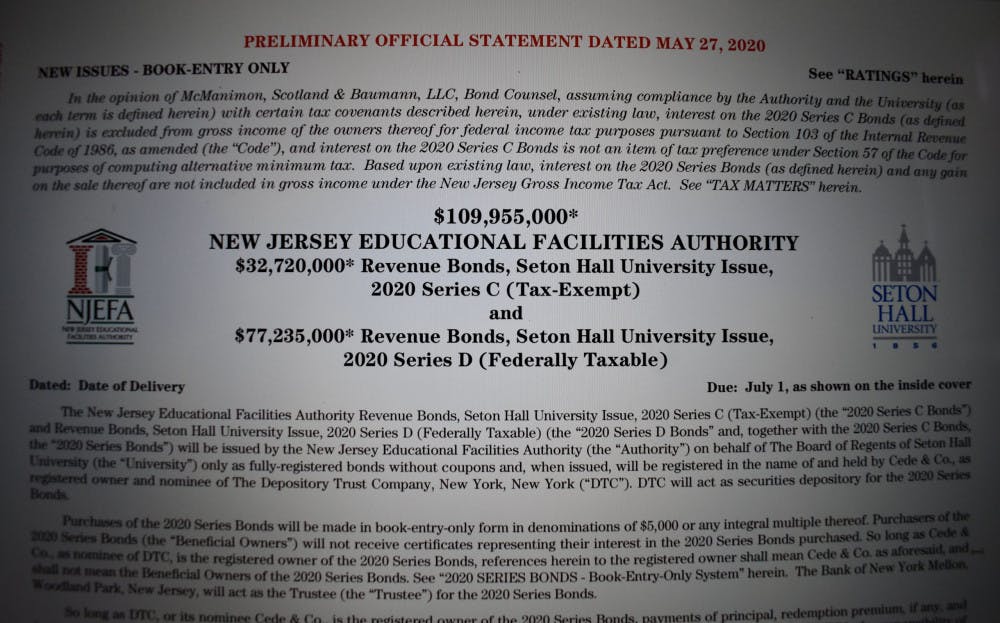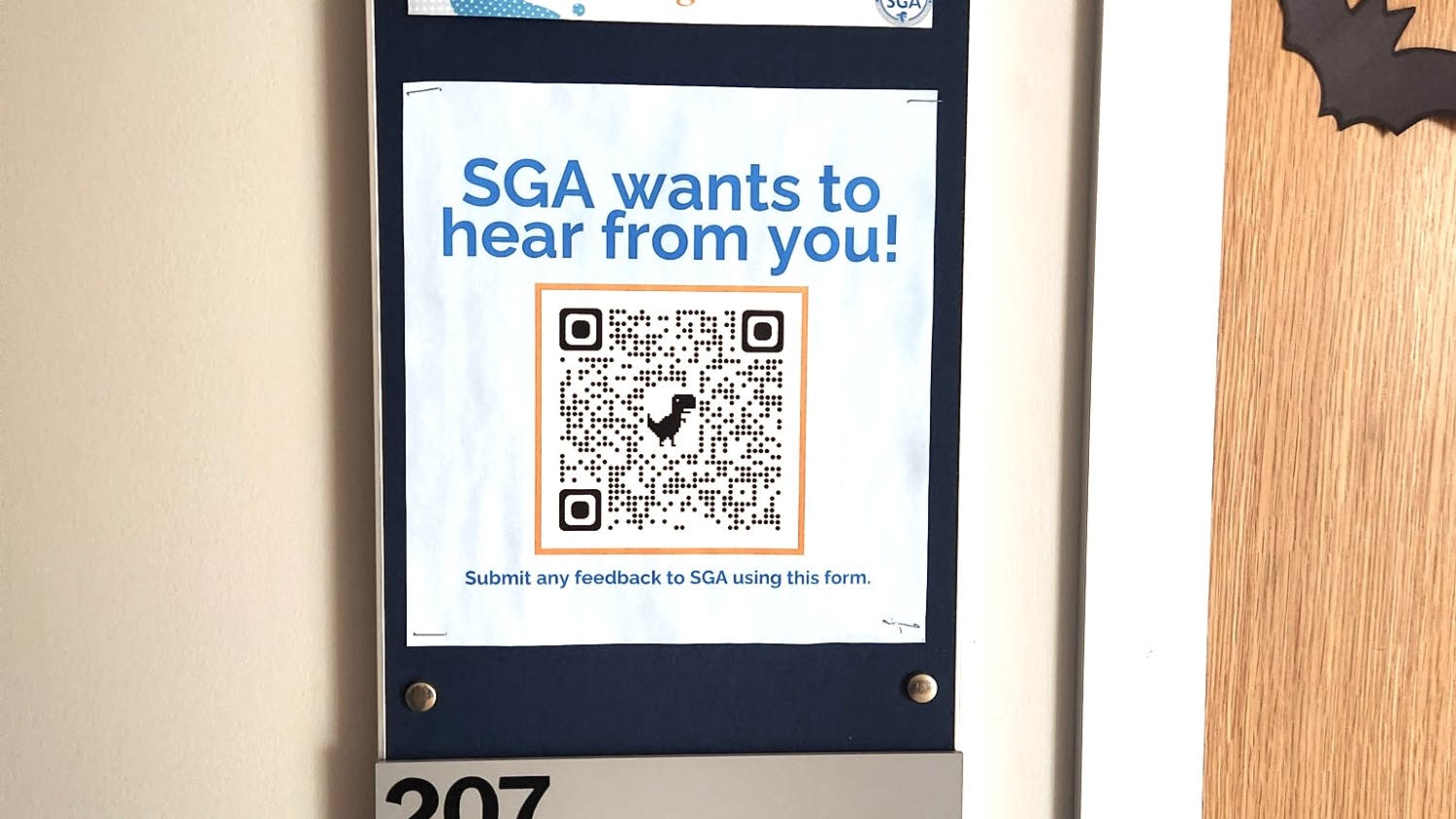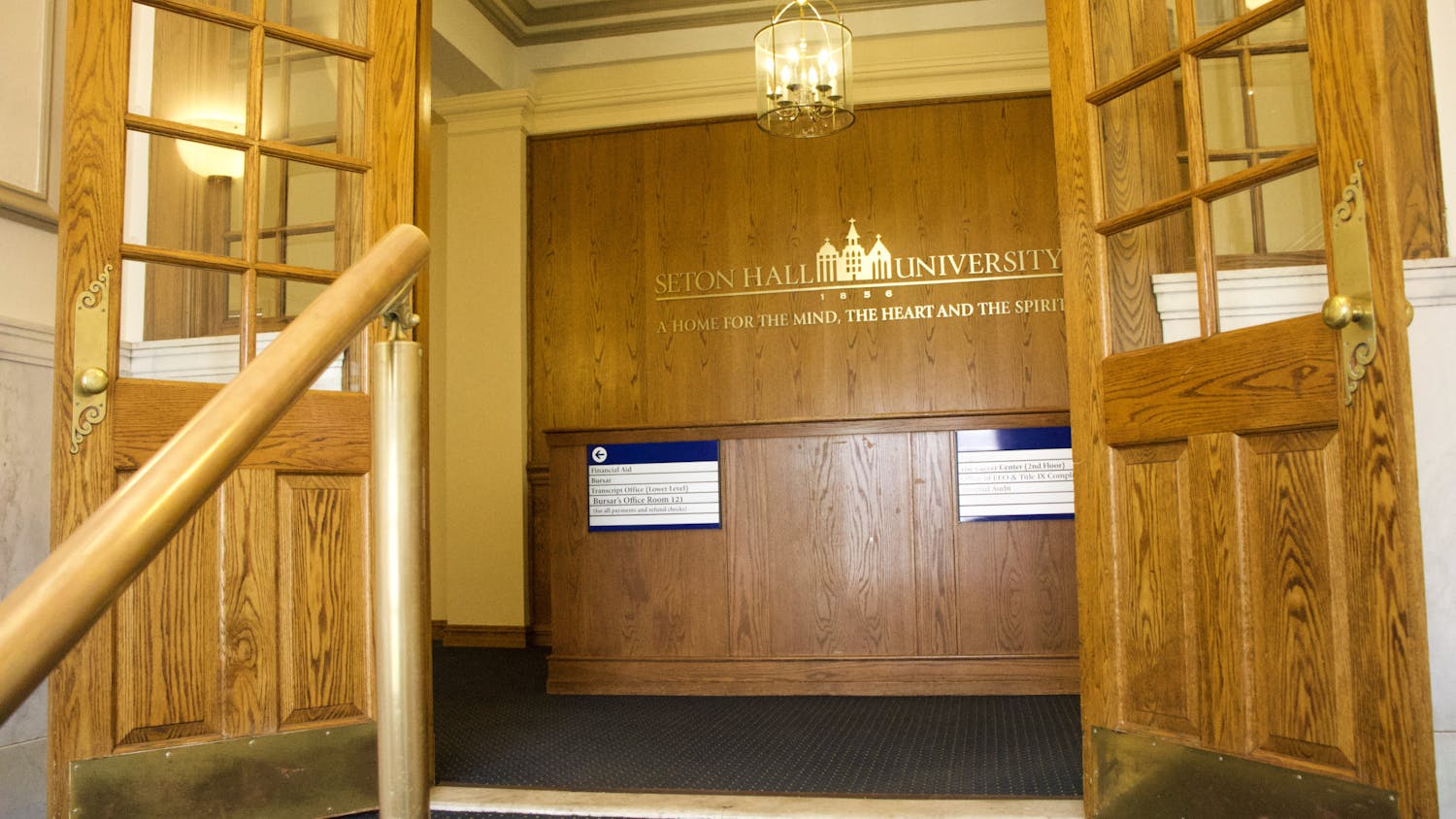The furloughing of roughly 150 staff and a University hiring freezes saved Seton Hall approximately $1.1 million, according to a new filing from the New Jersey Educational Facilities Authority (NJEFA), which approved the University for roughly $109 million in revenue bonds for various improvements around campus on Wednesday. The furlough represented roughly 15% of all non-faculty Seton Hall staff, according to the paper.
The furloughs sparked controversy last month when an academic advisor to roughly 300 Social and Behavioral Science (SOBS) students was furloughed by the College of Arts and Sciences, a move which was challenged by the chair of the SOBS department Dr. Rhonda Quinn, who called the move “distressing.”

“We are deeply distressed by the decision and are appealing it based on our view that the SOBS advisor, who advises between 250-300 students, is an essential student support role,” Quinn said in a statement to The Setonian. “Although not a sustainable solution after the summer, SOBS faculty with the help of the Dean of Students will ensure that all SOBS students are sufficiently advised during the furlough.”
Furloughs have been a widely used tactic to attempt to mitigate the financial blow of COVID-19 to businesses and colleges alike, with several organizations temporarily laying off employees who either cannot work remotely or whose work is not currently needed. According to a Chronicle of Higher Education analysis, roughly 19,200 fewer workers were employed by colleges in March 2020 compared with February 2020 – the largest negative nominal change since 2003.
According to the filing, which offered fresh insight into the financial response of the University to the coronavirus pandemic, Seton Hall took several actions on top of the furloughs and hiring freezes, including an indefinite hold on nonessential spending and a renegotiation of various contracts, which saved the School another $3 million.
Overall, the University is projecting an additional $1 million in expenses for the current fiscal year as a result of the COVID-19 outbreak but has roughly $70 million in cash and short-term investments, the filing said.
In February, prior to the outbreak which ultimately forced Seton Hall to close down campus until at least August, the University was projecting a $250,000 operational surplus, though the document notes that increased losses of revenue such as the $9.2 million in refunds to students for room, board and parking make projections for the end of the fiscal year uncertain.
In an effort to mitigate the financial impact of the virus, the NJEFA noted that Seton Hall was exploring several strategies including extending and expanding the University’s line of credit, deferral of employer contributions to the payroll tax, federal stimulus cash and indefinite hiring and travel freezes.
The University plans to submit its final budget for the 2021 fiscal year to the Board of Regents on June 4, with three core contingencies bakes into the plan which includes preparations for a return to in-person instruction for the Fall 2020 semester, no in-person instruction for one semester and no in-person instruction all year, according to the filing.
The document also noted that the University could be on track to bring in a sizable freshman class for the 2020-2021 academic year despite lowered expectations which came about as a result of the COVID-19 outbreak, saying that the “University expects to meet its full-time undergraduate enrollment.” According to the NJEFA, the University had initially slashed its enrollment goals by nearly 10% in the wake of COVID-19.
As of May 20, Seton Hall had received 1,428 deposits from potential incoming students, 123 deposits higher than the initial revised COVID-19 projection, indicating potential fiscal relief for a University that heavily depends on students’ tuition revenue.
Seton Hall officials did not immediately respond to a request to comment.
Nicholas Kerr can be reached at nicholas.kerr@student.shu.edu. Find him on Twitter @nickdotkerr





